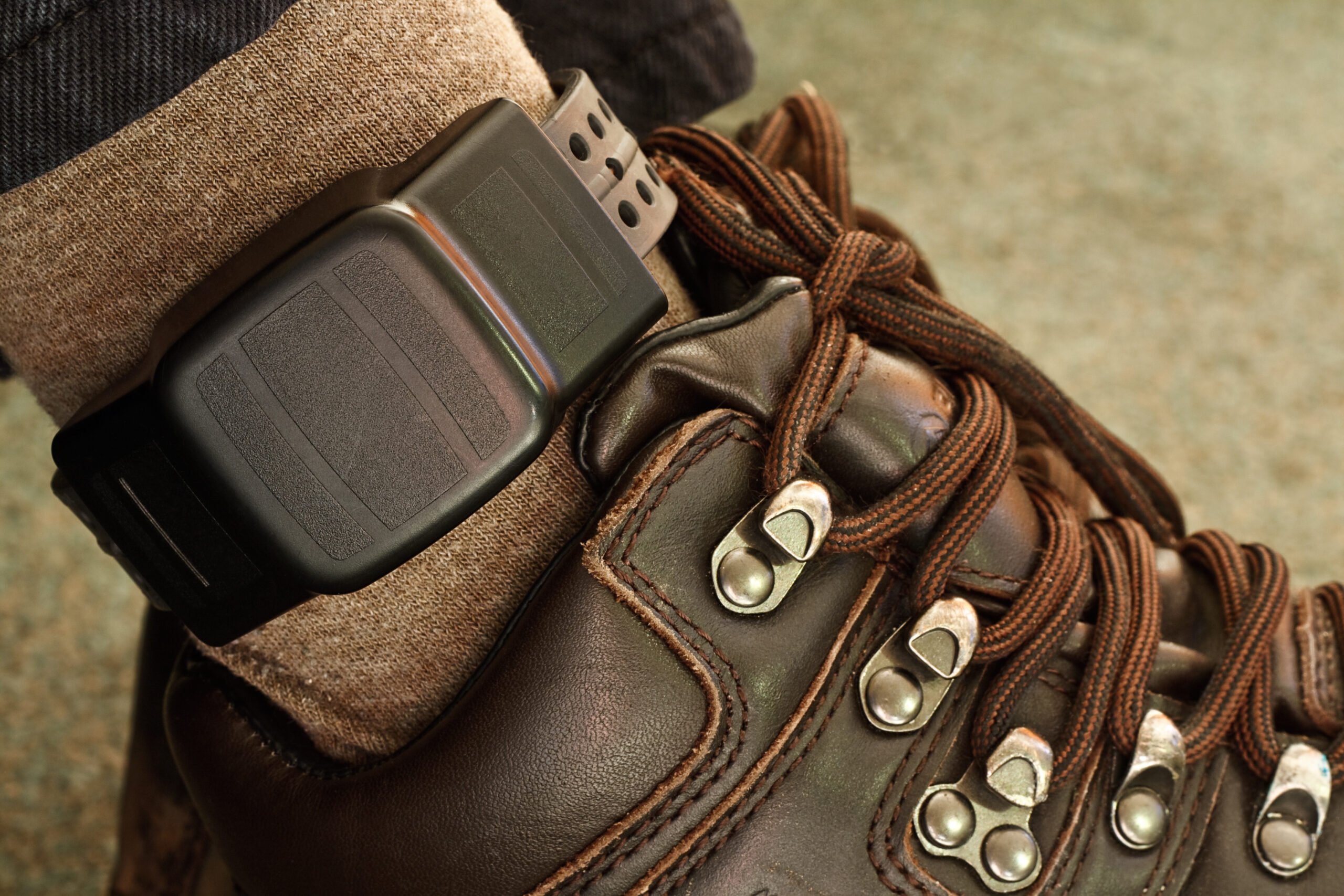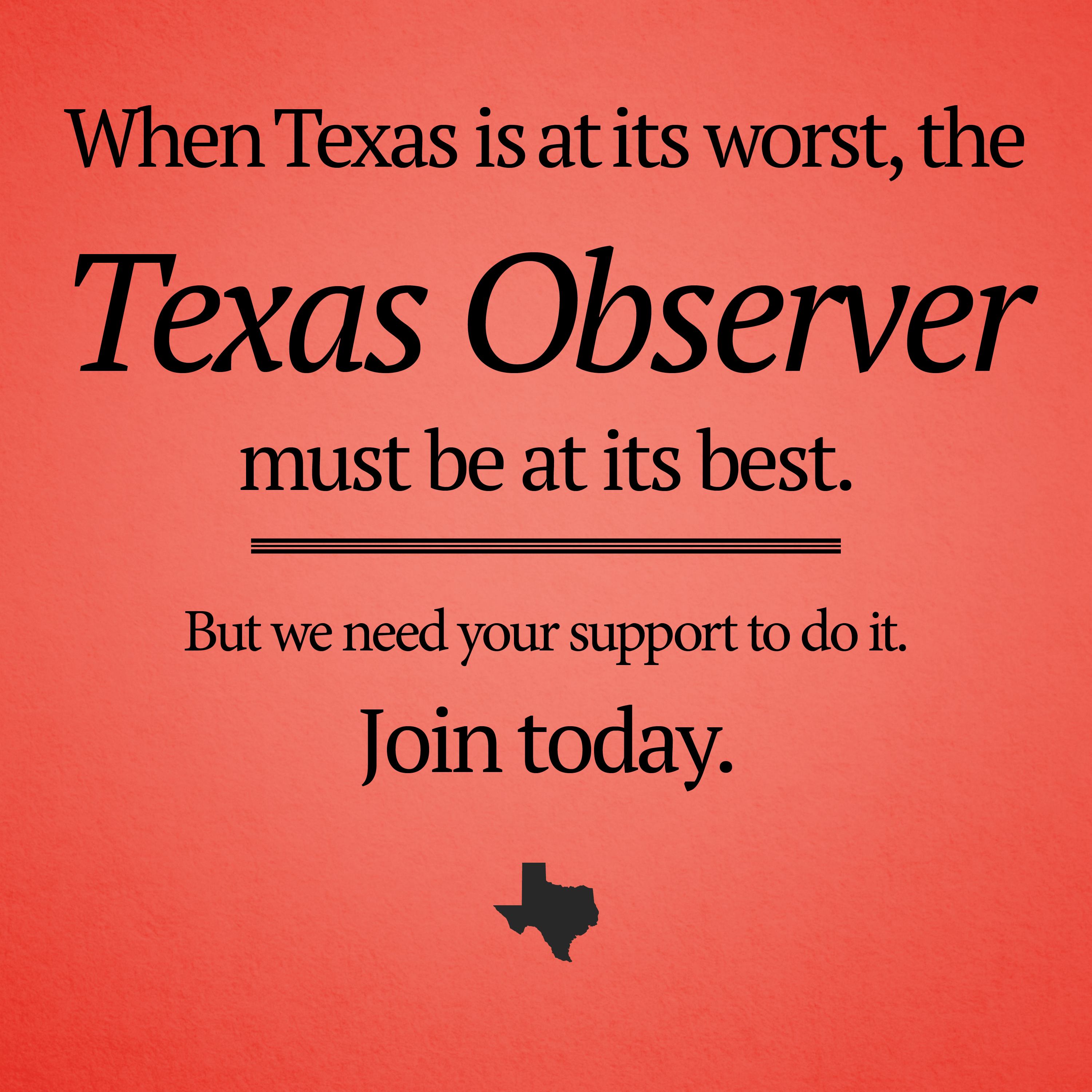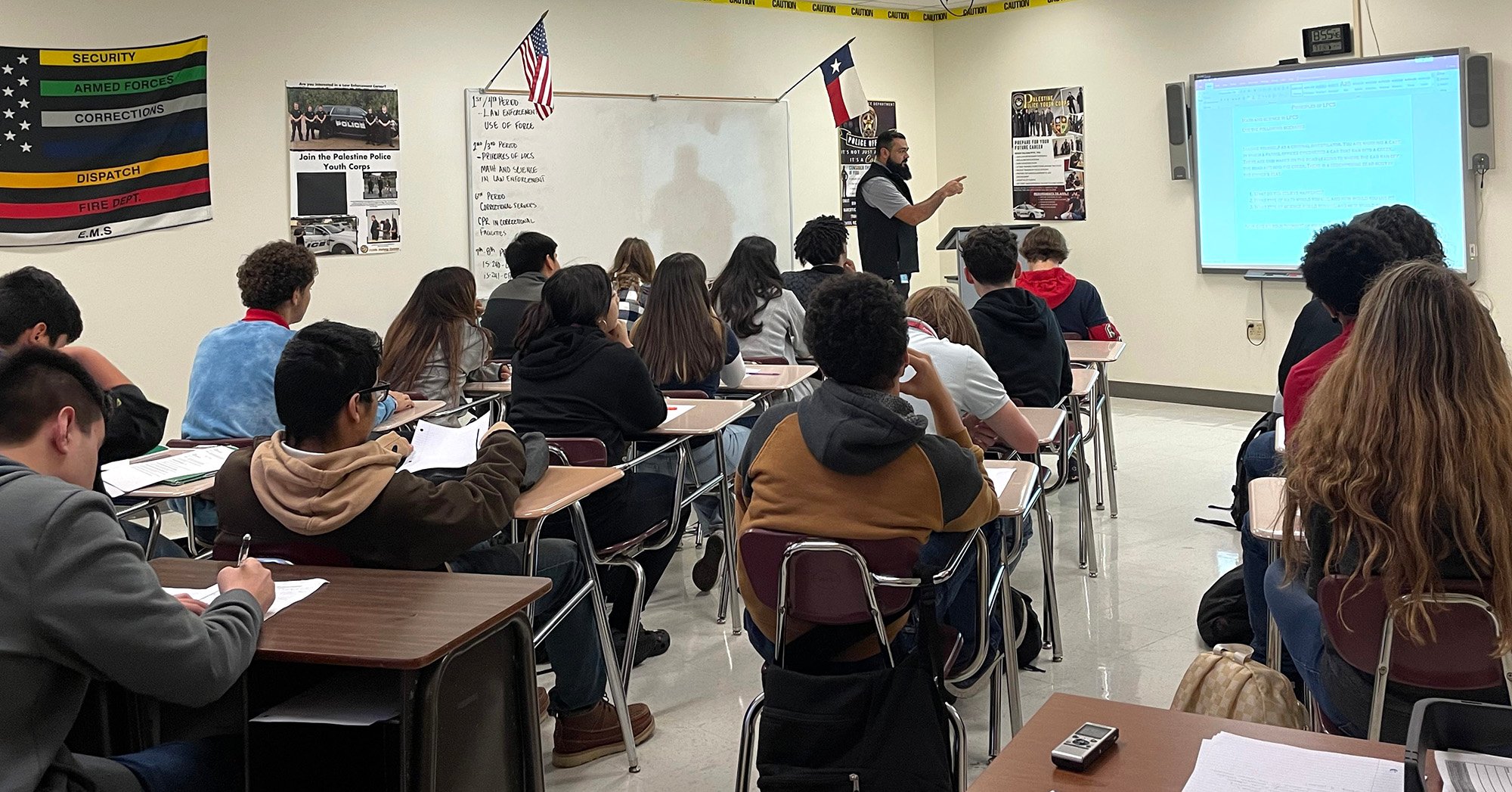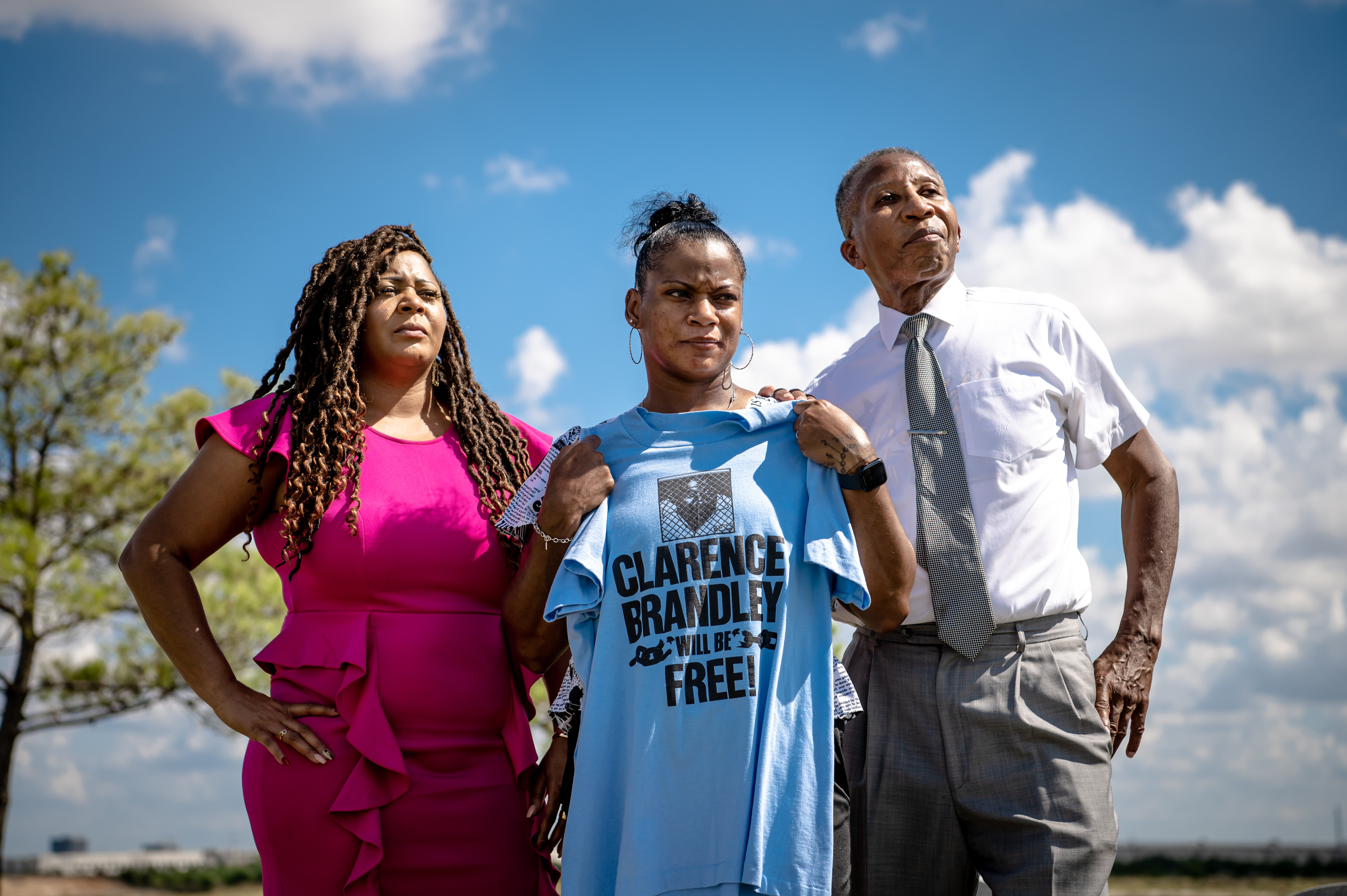
Life with Parole
Probation and parole systems remain understaffed and buggy in Texas.

Jasmine Torres tried to answer the phone call, but cell service was poor at her factory job. Torres has been on a GPS ankle monitor since December 2021 as a condition of her parole, and the command center was calling to check in. She paid for the missed call with a month in jail.
Torres is one of the 437,000 people on parole or probation in Texas, a number that accounts for more than half of all the people affected by the criminal justice system as a whole, according to a recent report by the Prison Policy Initiative (PPI). Almost twice as many people are under community supervision—an umbrella term that includes probation and parole—as are incarcerated in prisons or jails nationwide.
“Probation and parole are often used as what people think about as rehabilitative alternatives to incarceration,” said Wanda Bertram, a spokesperson for PPI. “Someone might say sticking somebody in prison for a drug crime is way too punitive of a response to a drug crime, and they should put people on probation instead.” She adds the reality is that these systems are still “extremely punitive.”
So what does Texas’ heavy use of community supervision mean? Parole (supervised release after incarceration) and probation (supervision instead of incarceration) seem on their face like an obvious way to reduce prison and jail populations in a state where more than two-thirds of prisons don’t have air conditioning and rising jail populations strain local resources—sometimes with deadly consequences. But both systems are plagued with inefficiencies, and there aren’t enough officers to effectively work all the cases. The result: People fall through the cracks and land behind bars.
“Probation and parole have become important drivers of prison growth.”
“Probation and parole—the most popular alternatives to incarceration—have become important drivers of prison growth,” wrote Cecelia Klingele, associate professor of law at the University of Wisconsin Law School, in a journal article.
Gary Cohen, a longtime parole lawyer, represents people who are at risk of parole revocation, which means they could get sent back to prison to serve out the remainder of their sentences. He says in his experience, the Texas Board of Pardons and Paroles tends not to revoke parole for administrative or minor violations like missing office visits or falling behind on fees. Instead, there is a slate of intermediate sanctions in these cases, ranging from more parole limitations to a couple months in lockup.
“A lockup period is kind of a slap on the wrist,” he said. “It says, ‘Hey, we need to get your attention. … And if you mess up again, the consequences may be harsher.”
But while revocation is largely reserved for what experts call the most serious situations—often when someone commits a new crime—a massive portion of people under community supervision end up in police or Texas Department of Criminal Justice (TDCJ) custody within three years of starting their supervision. Many of these arrests are for parole or probation violations.
The stipulations for parole, handed down by the Texas Board of Pardons and Paroles and carried out by TDCJ, can be wide-ranging. They might include mandatory substance abuse classes, abstinence from alcohol, or prohibitions on who the person can associate with. Experts and activists have pointed to how detrimental some of these limitations can be, particularly by hampering how seamlessly someone can reenter society after incarceration.
Marci Simmons has been on parole since 2021. She said she felt like officials didn’t clearly explain all of the ways she could potentially violate her parole when she was released. The parole conditions were written in a dense, legal format. “I have [attended] some college, and I had a hard time understanding that,” she said.
Marci Simmons can’t have a checking account, a savings account, or a credit or debit card. At the same time, she’s required to work.
Simmons’ stipulations are largely financial—she can’t have a checking account, a savings account, or a credit or debit card. At the same time, she’s required to work. She said she’s lucky to have family she can trust to manage her finances until her restrictions are lifted. She cares for her grandmother, who has Alzheimer’s, but she feels extremely limited in how she can help. “I’m scared,” she said. “I’m scared to use her debit card to pay her bills.”
Electronic GPS monitoring is one of the more limiting parole stipulations. People with GPS monitors live across the state, including in rural areas, where the GPS equipment is far less reliable. TDCJ contracts with international security company Allied Universal for its GPS monitoring, according to a spokesperson.
When Jennifer Toon was released from prison in December 2018, she was fitted with an ankle monitor. When she showed up to the parole office, she was told she was on super intensive supervision and would be monitored for at least a year—a shock to Toon, who had not been told she would be living under such strict requirements after her release.
Toon had to regularly submit written schedules. Work, classes, church, recreation—including just going outside in her own yard—all had to be cleared by the supervising officer. And she was told her supervisor would only approve work and treatment classes. “I was devastated,” Toon said.
That year, she stayed with her family in Kilgore, working two jobs. She feared that she would have to go to the hospital in an emergency, which would be a violation of her parole. Despite her efforts to comply, Toon said her equipment frequently failed. The unreliability of the technology is a common refrain among people who have been under GPS surveillance.
She said when she speaks to women who are still incarcerated, she tells them to avoid super intensive supervision at all costs. “I tell the girls, ‘I know you want to get out of prison, but if you’ve only got a year left on your sentence or two years left on your sentence, I’m going to tell you to ride it out. Because it’s that big of a nightmare.”
There are just under 1,200 parole officers in Texas, according to a Texas Department of Criminal Justice spokesperson. These officers work out of about 70 offices across the state to handle the cases of the approximately 103,000 people on parole in Texas.
In rural areas, this can mean a few officers covering a large geographic footprint, a huge hurdle for people under supervision who don’t have reliable access to transportation. Toon had to report to a county more than 30 miles away because her’s didn’t have a parole office.
“That may not sound like a lot to other people, but when you don’t have any money and you don’t have a vehicle and your officer says you better be in Tyler and you live all the way in Henderson … Well, how do I get there? They’re going to violate me if I’m not there.“
View Parole Offices in a full screen map
Officers feel the strain as well. The Texas Observer spoke with two parole officers who asked to remain anonymous in order to protect their jobs. One officer in the Houston area said her caseload is double what it’s supposed to be, and the paltry pay doesn’t begin to cover her work. The base salary for a parole officer in Texas is just under $42,000 and the salary range maxes out under $67,000.
“I just think the people at the top, they really don’t understand at all what we go through.”
“I just think the people at the top, they really don’t understand at all what we go through,” said another officer. She said in her more than a decade on the job, she’s always been overworked, but the work has gotten even more unmanageable in recent years.
One officer said turnover in her office has been extreme—the office has lost nearly 30 officers in less than a year. And when one office loses personnel, it’s often up to a nearby location to pick up extra cases. The higher the caseload, the less time officers have to work with each person on supervision to ensure they don’t end up incarcerated.
“When I took this job, it was supposed to be about community supervision, reintegrating and helping people back into society,” one officer said. “That’s not what it’s about. It’s all about writing them up, writing them up, violating them, and revocation hearings. … Do I think we’re helping to make the community a better place? Absolutely not.”



